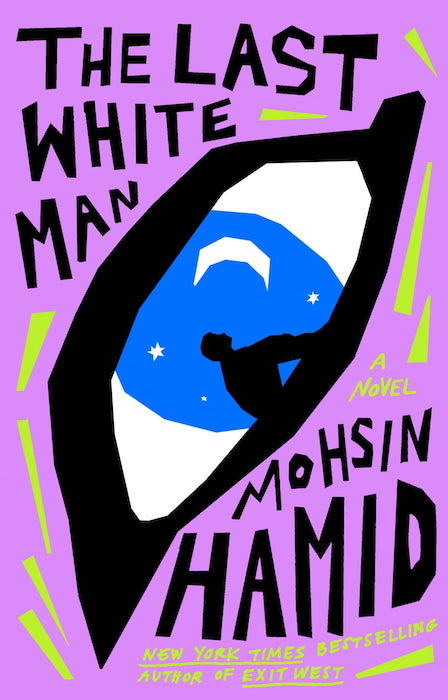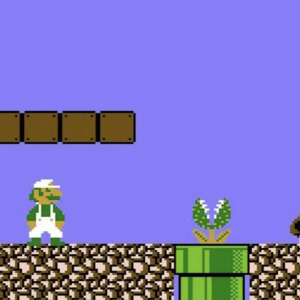That week Anders felt vaguely menaced as he went around town, which he did as little as he could manage, and though this carried its own risks he wore a hoodie, his face invisible from the sides, and if it had been colder on those glorious, early autumn days, he would have worn gloves, but that would have looked ridiculous given the temperature, so he kept his hands in his pockets and a backpack slung over one shoulder to carry whatever he had come out to get, rolling paper or bread or a replacement charging cable for his phone, meaning his hands could mostly stay hidden, slipping out only to open a door or slide across a payment, a flash of brown skin like a fish darting up to the surface and down again, aware of the hazards of being seen.
People who knew him no longer knew him. He passed them in his car or on the sidewalk, where sometimes they gave him extra room, and where sometimes, unthinkingly, he did the same. No one hit him or knifed him or shot him, no one grabbed him, no one even shouted at him, not after the woman in the car, at least not yet, and Anders was not sure where his sense of threat was coming from, but it was there, it was strong, and once it was obvious to him that he was a stranger to those he could call by name, he did not try to look in their faces, to let his gaze linger in ways that could be misconstrued.
Almost as disturbing as seeing someone he recognized was the feeling of being recognized by someone he did not, someone dark, waiting at a bus stop or wielding a mop or sitting in a group at the back of a pickup truck, sitting in a group that was, he could not help it, that was like a group of animals, not like humans, being transported from one task, one site, to the next, and actually this was more disturbing, the moment when one dark man would look at him, look at Anders as though he saw him, for an instant, their eyes meeting, not in friendliness or hostility, but just as people’s eyes meet, as people, and when this happened Anders would look quickly away.
Anders put off telling his father, why he was not sure, maybe because his father had always seemed a little disappointed in him, and this would add to his disappointment, or maybe because his father had enough on his plate, and Anders did not want to increase his burden, or maybe because until his father was told, it would not have really happened, Anders would still be Anders, there in the house where he grew up, and the telling would undo that, and make everything different, irrevocably different, but whatever the reason, he waited, he waited and then he told. He did it over the phone, which was a cowardly thing to do, but he had no idea how to drop by and just say it, why his father would even believe him, and that was how he had told Oona, over the phone, and so that was how he did it again, and his father hung up the first time, and the second time asked him if he was high, if he thought this was a joke, and when Anders said no to both, he asked, with steel in his voice, a steel familiar to Anders, if his son was trying to call him a racist, to which Anders replied he most definitely was not, and so his father said, show me, smart guy, come here and show me if you can.
Anders’s father had beaten him properly only once, he had hit him more than a few times, but a solid beating, that was only once, for his mother had long forbidden it, and the time he had beaten Anders it was because Anders had been negligent with a loaded rifle, discharging it by mistake, Anders negligent after repeatedly being warned, and back then Anders was two heads shorter than his father, and his father, Anders thought, had been right to beat him, but it had been a beating Anders would never forget, not the beating nor the lesson, and that was the point, a gun was a marker on the journey of death, and was to be respected as such, like a coffin or a grave or a meal in winter, not to be foolish with, and as he drove to his father now, though Anders was the taller, heavier man, for some reason that beating found its way right into the front of Anders’s mind.
Anders’s father was a construction foreman, gaunt and ill to his core, ill in his guts, but he did not trust doctors and refused to see them, and his pale eyes burned like he had a fever, or like he was praying for a murder, they had been that way since Anders’s mother had died, or since she had gotten sick and it had become clear she would not get better, or maybe since before that, Anders was not sure, but for all his gauntness his back was erect and his forearms were like corded ropes, and he could walk carrying an improbable load and barely sway, with the kind of strength that just got things done, a fearsome strength, if Anders was honest, and his father was waiting for him on the stoop of his house, and he was looking at his son, the son who had reminded him of his wife, the boy’s mother, not that the boy was soft, but he was gentler than was good for him, and he was lost in dreams too easily, and he had her fine stamp on him, a boy in his mother’s mold, and as he saw his boy now, as he watched Anders approach, that was all gone, she was gone, and this boy, who made easy things hard, who had not yet found his way, this boy, Anders’s father could see, was going to suffer, and his mother had vanished, she was nowhere to be glimpsed in him, and he stood there, Anders’s father, a cigarette in his mouth, one hand holding on to the fabric of his son’s sleeve, the other rigid at his side, and he wept, he wept like a shudder, like an endless cough, without a sound, staring at the man who had been Anders, until his son took him inside, and they both at last sat down.
On her day off, Oona went to the city to see a friend, the city where she had gone to college and begun an interrupted, or abandoned, life, Oona was not sure which, she had once thought the former, but she was a realist, and she knew every month you spent away from the city made it harder ever to return, she knew that, the city just worked that way, it was the price you had to be prepared to pay, and she was prepared, mostly, and she was paying it, but she missed the city, missed it fiercely, especially then, as she drove the three-hour drive that day and let herself feel it calling.
Crossing the bridge and the mighty water and seeing the tall buildings, it was as though she was entering another world, and becoming another Oona, and it should not have been possible that she could just pull over and step out of her car onto these streets she knew so well, but it was, and she walked in her old neighborhood park, and grabbed a bottle of wine from her old liquor store, and saw the lights start to glow against the evening, and then she was in her friend’s tiny apartment and the wine was open and the city was there outside the windows and they could have pretended, if they cared to, that no time had passed for them at all.
But they spoke, and Oona did not want to speak of her brother, but her friend asked, and so she did, and the mood changed, and it was now again, and not then. They had to eat, which took them out, and as they ate, they drank, and their spirits grew less heavy, and they went to a bar Oona had never been to before, and they drank further, and guys hit on them, and there was dancing, and there was a body close to hers, and being touched through the fabric of her dress, and a proposition, and a shared rhythm, and considering whether to go home with him, more than considering, the up-close beginnings of something, desire, but there was tiredness too, a tiredness, and an excuse made, about an early start to the next day, and an unsettled sleep on her friend’s sleeping bag, on a sliver of bare floor, and an alarm at dawn, she who never needed an alarm, and then she was on the highway, a large coffee having replaced her usual morning ritual, under a bloody sky, her mind full and aching, the music low, headed back to make it in time for her noon class, to teach, to dig into herself to be able, and teach.
That week Anders messaged Oona and she only intermittently replied, from his end enough for him to try again a day or two later, from hers enough not to seem completely cold, the fact that she was messaging him to any extent being against her better judgment, and she was careful not to message so readily as to imply she was more comfortable with his situation than she was, which was to say not very comfortable at all.
Reports began to emerge from around the country of people changing, reports at first utterly disreputable, and easily disregarded, and roundly mocked, rightly so, but later picked up by reliable voices, as a question to be confirmed, being confirmed, apparently happening.
When Oona’s mother called her downstairs one night to say that it was on the television, that they were interviewing someone who had stopped being white, right now, on the news, and then said, as Oona stood beside her, you see, you see, there’s proof, Oona watched, and after a while stepped out and phoned Anders.
Behind Oona’s house the moon was visible, a little less than full, a pregnant belly moon, that was what her father used to call it, and stars were scattered across the sky, and Jupiter was there, bright, and Saturn, not quite so much, and she followed their arc, looking for Mars, but there were trees in the way, and Mars was nowhere to be seen, and not seeing Mars made her think of how frigid space was, how inhuman, a lifeless void, dead, like her father, and like her brother who had followed him, who had never gotten over him, and this train of thought unmoored her, making the Earth less reliable an anchor, her connection to the grass under her bare feet less firm, and she felt the pull of their absence, her brother, her father, pulling at her, the nothingness that had taken them, that takes us all, how can it take us all, obliterating us, and then a ringing, a ringing that stopped, and Anders answered her.
He had been watching the news too. “I guess you’re not alone,” she said. “I guess not,” he replied, quietly. “How does that feel?” she asked.
He waited a long time. “Not worse,” he said. And the way he said it, it sounded to her like an invitation.
__________________________________
From The Last White Man by Mohsin Hamid. Used with permission of the publisher, Riverhead Books, a division of Penguin Random House, LLC. Copyright © 2022 by Mohsin Hamid.













